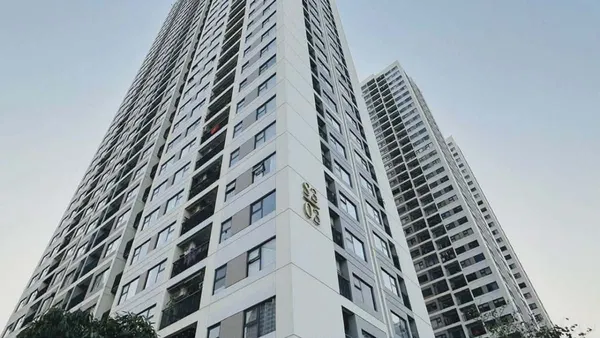 Business Beat
Business Beat

Large mergers and acquisitions deals, an explosion in digital banking and the listing of several banks’shares on the stock market are among the key events expected this year in the financial sector.
Compiled by Thiên Lý
Large mergers and acquisitions deals, an explosion in digital banking and the listing of several banks’shares on the stock market are among the key events expected this year in the financial sector.
Vietcombank, one of the four large State-owned lenders, is expected to lead the way with a huge M&A deal, offering 6.5 per cent of its stake for sale for around US$1 billion right at the beginning of the year.
It is expected to go smoothly since many foreign investors are keen on laying their hands on the bank’s shares thanks to its outstanding business performance. For instance, last year it reported a profit of $1 billion.
MBBank is thought to be planning to sell a 7.5 per cent stake for $240 million through a private offering. It is in talks with around 40 potential investors from many countries and territories, including Japan, Hong Kong, Singapore, and South Korea.
VietinBank, in which foreign ownership is already close to the permitted maximum level, wants State ownership reduced to 51 percent from the current 65 per cent to enable it to sell stakes to foreign partners and raise capital.
Even banks that the State Bank of Việt Nam (SBV) had acquired at zero đồng, like Ocean Bank, GPBank and CBBank, have attracted the attention of foreign investors, who would like to participate in their restructuring process.
Foreign investors, especially in the finance sector, are keen on Việt Nam but would rather buy into existing players than set up their own businesses. But since they would also like to have a say in running the business, many are seeking to increase their stakes.
The SBV allows foreign investors to own stakes of 30 per cent in the credit institutions and even beyond the current 30 per cent permissible level in banks that are defined as weak or placed under special supervision though it will be approved on a case by case basis by the Government.
Experts said however that the decisive factor in creating interest among foreign investors has been the excellent performance by many banks in recent years, especially 2019.
Many lenders have been achieving outstanding results since the banking sector restructuring plan was initiated by the SBV in 2012.
The plan is meant to improve the resilience of the monetary system and the size and quality of banks' equity and to eliminate businesses with small profits.
In 2016 the central bank set a deadline of January 1, 2020, for 17 banks to meet Basel II norms.
Also, by 2025 all banks in the country have to adopt the standard version of Basel II before switching to the advanced version.
Basel II is the second edition of the Basel Accords, which are recommendations on banking laws and regulations issued by the Basel Committee on banking supervision. It comprises minimum capital requirements, supervisory reviews and market discipline to enhance competition and transparency in the banking system and make banks more resistant to market changes.
Basel II requires banks to have a capital adequacy ratio (CAR) of at least 8 per cent.
To back up the banking industry’s M & A deals, experts said the Government needs to amend laws and complete the legal framework related to investment and business such as the Investment Law, the Enterprise Law, the Securities Law, and the Construction Law.
Besides, regulations governing M&A activities need to be clearer, more specific and in line with international practices to ensure that deals are implemented successfully, they said.
Share listing
Many banks also plan to list their shares this year.
Currently only 17 out of the country’s 31 banks are listed on three stock exchanges.
But under to a plan to restructure the Việt Nam Stock Exchange, already approved by the Government, by 2020 all commercial banks will have to list their shares or register to trade their shares on the Unlisted Public Company Market or UpCoM.
OCB is among the banks that have already submitted documents to the HCM Stock Exchange to list this year.
A spokesperson for the lender said the listing would occur when market conditions are more favourable.
The development of digital banking is also a very important target that many banks have set for themselves this year. Many have already announced plans to join the digital race.
Phạm Anh Tuấn of Vietcombank said the bank has sent a message to all its employees saying “Digital transformation: It means life or death” in the hope that they could fully understand its importance and seriously implement it.
Realising that digital transformation is imperative to their very survival, lenders are ready to spend huge amounts of money to develop banking technologies and train human resources to adapt to digital.
Từ Tiến Phát, deputy director of ACB, said in 2020 banks will have to face a fierce competition in attracting customers by cutting operation costs and increasing amenities. To success in this race it is a must for the banks to push up digital transformation.
Lenders would have to focus on developing digital payment and services, particularly card services, he said. ACB wants to turn bank cards into multifunctional cards that could be integrated with identity cards and enable cardholders to use them for various purposes like payment, travel and insurance, he said.
Banks believe digital banking will help them compete with fintech companies, which offer e-wallets and QR codes, and with P2P lending, which is seeing a boom now.
HCM City apartment supply to remain limited
Real estate consultancy Jones Lang LaSalle Việt Nam (JLL) estimates 30,000 -35,000 apartments will come into the market in HCM City this year.
The biggest problem facing developers would remain the Government’s tight control over land use rights and construction licenses, which could keep supply modest, it said.
The strong demand would continue, further pushing up apartment prices, though the high-end segment is likely to see a decline since prices are too high and rental yields are too low, which makes this segment increasingly unattractive to investors, it said.
JLL’s latest property market report says nearly 30,000 new units were offered for sale last year while sales totalled more than 30,000.
Mid-priced apartments costing between US$1,200 and $1,700 per square meter remained the most in demand, accounting for 70 per cent of all units sold last year. Many are in prime locations and offer a wide range of amenities and still have plenty of room for their prices to rise.
The increase in apartment prices was mainly driven by the shortage of low cost housing projects.VNS




